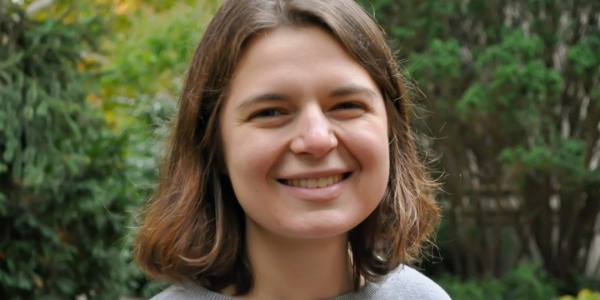Bacteria bred for 2000 generations settle evolution mystery
There is a long-standing debate in biology about the relative importance of existing variation versus new mutations in evolution. Now this has been put to the test in an experiment with bacteria that ran for 2000 generations - and new mutations quickly won out.

After 500 generations, the pre-existing variation no longer mattered and all further evolution was due to new mutations, says Minako Izutsu, a postdoctoral researcher in Microbiology and Molecular Genetics in the MSU's College of Natural Science. She and co-author Richard Lenski are EEB members.
"Five-hundred generations in our experiment is 75 days. It's really short," says Izutsu. "I thought the effects of standing variation would last longer."
Mutations in the genomes of organisms provide the variation on which natural selection can act - that is something biologists agree on. What they have long argued about is whether evolution acts mainly on past mutations or has to hang around waiting for new mutations, and to what extent evolution can be shaped by chance mutations.
Darwin proposed that evolution occurred by very gradual changes. But with the rise of genetics in the early 1900s, some biologists backed an idea known as mutationism, which suggested that evolution is essentially due to new mutations and that particular mutations could have dramatic effects. Mutationism was rejected by the proponents of the so-called modern synthesis of evolution.
"Mutations are rarely if ever the direct source of variation upon which evolutionary change is based," geneticist George Ledyard Stebbins wrote in 1966. "Instead, they replenish the supply of variability in the gene pool."
Today, it is clear that things are more complex. "We know that, in evolution, not only is natural selection important, but there are these other forces like mutation, recombination and genetic drift," says co-author Richard Lenski, also at Michigan State University.
However, the relative importance of new mutations compared with the variation created by past mutations has been unclear.
Evolution experiments involving plants and animals typically start with a diverse population and run for only a few generations, so the changes seen depend entirely on standing - that is, pre-existing - variation, says Lenski. Some mathematical models also assume that there is unlimited existing variation for evolution to act on.
By contrast, experiments with bacteria normally start with genetically identical bacteria, says Lenski, and so the evolution seen is entirely due to new mutations. Izutsu set up 72 populations of Escherichia coli bacteria ranging from genetically identical ones to highly diverse ones. All the bacteria were taken from the Long-term Experimental Evolution Project that Lenski started in 1988, which he is now handing over to another group after running it for 75,000 generations.
The 72 populations of bacteria, which had been fed on glucose, were fed another nutrient (Dserine) to force them to adapt to a new environment.
"The genetic variation that was there to start with really mattered early in the experiment, maybe for the first 50 to 100 generations," says Lenski. "But by 500 generations, that starting variation no longer mattered at all. It was a bit surprising, to me at least."
"The results provide pretty compelling evidence that standing variation contributed to very early stages of evolution in these bacteria, but that long-term adaptation appears to require new mutations," says David Stern at the Howard Hughes Medical Institute in Virginia.
What is less clear is whether this also applies to sexually reproducing organisms. Stern thinks long-term evolution in animals and plants is also dominated by new mutations, but says he has long arguments with colleagues who think standing variation dominates.
"We simply don't have the right kind of data at the moment to settle this question," he says.
Another surprise in the experiment was that in some of the mixed populations, one lineage of bacteria initially fared badly, declining in relative abundance after around 30 generations. In theory, the dominant bacteria should then have evolved faster thanks to their larger numbers and taken over completely. But instead, the lineage staged a comeback after around 100 generations, becoming dominant.
Izutsu suspects this lineage is better at evolving, perhaps because it mutates faster. She is planning further studies to find out why.
Read the story in New Scientist (behind a pay wall)



